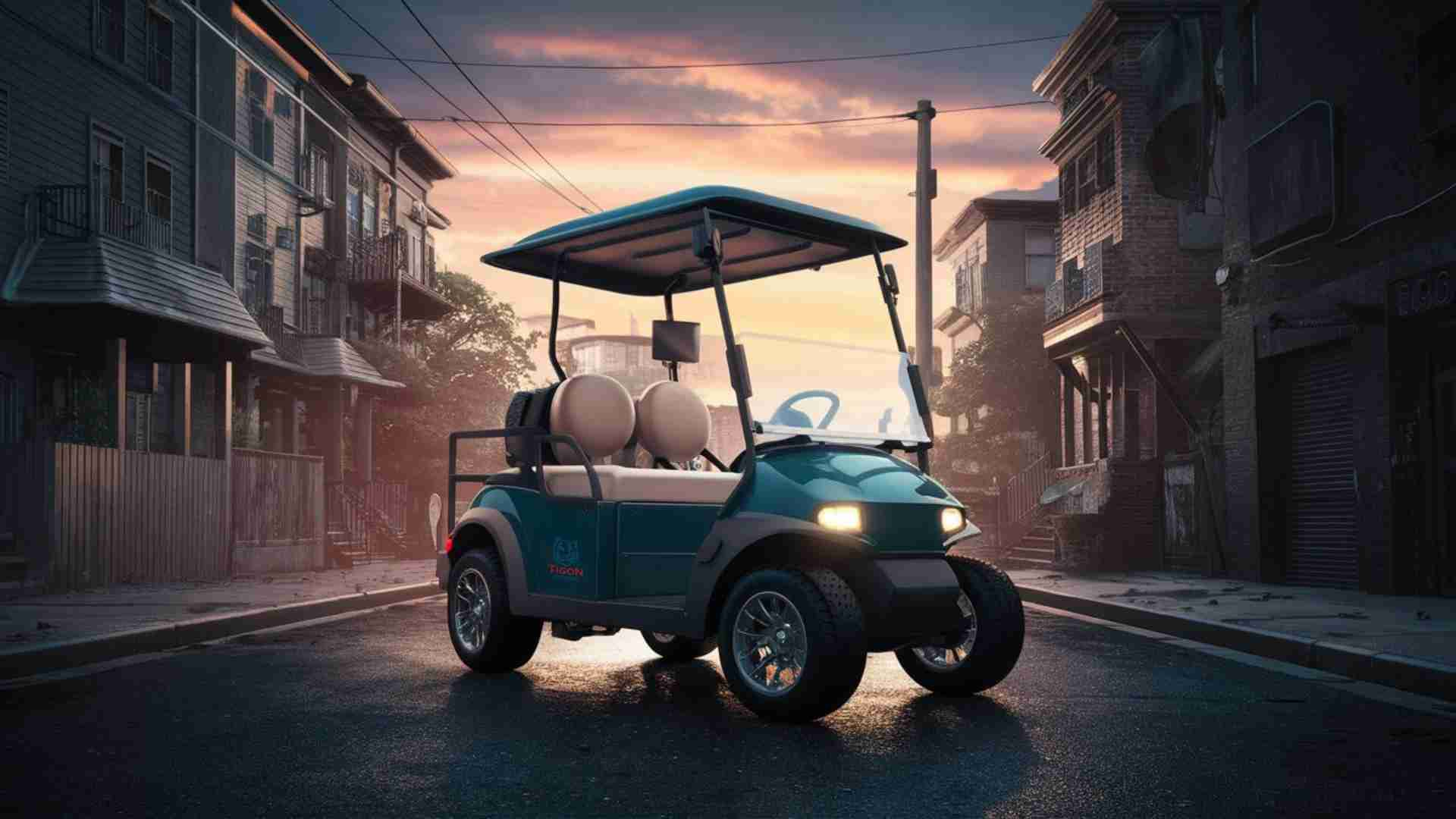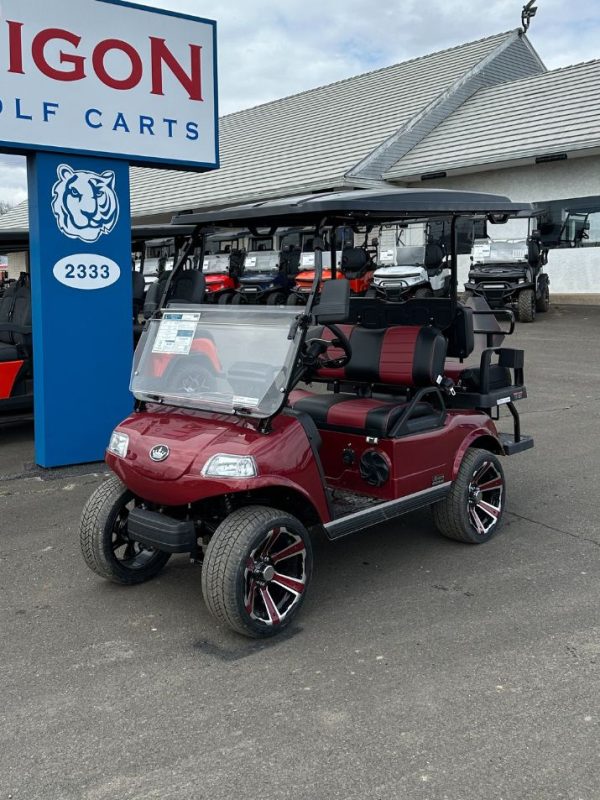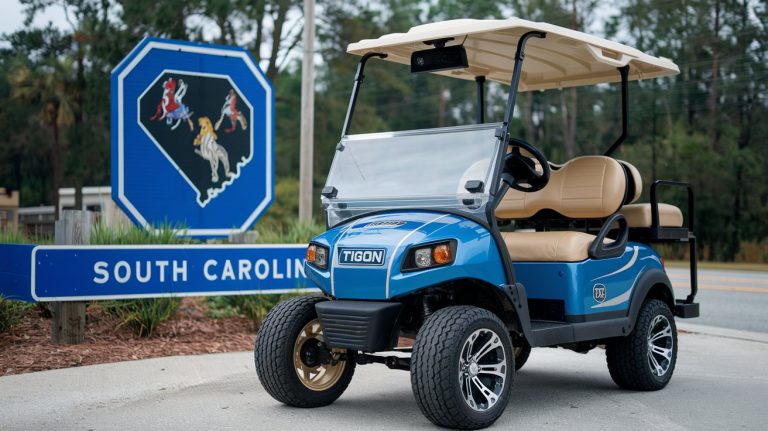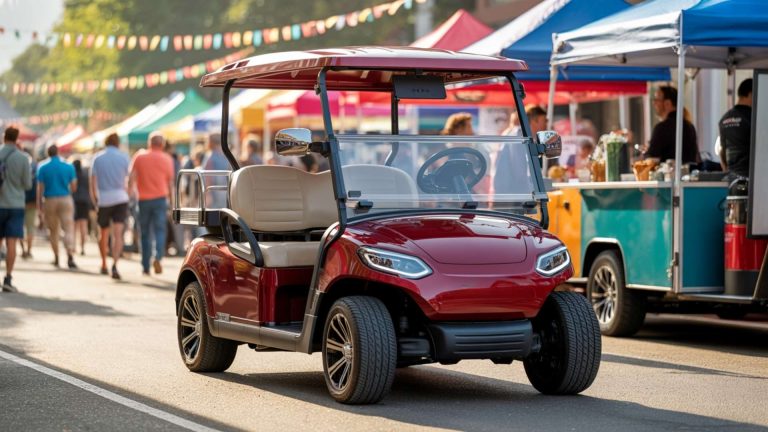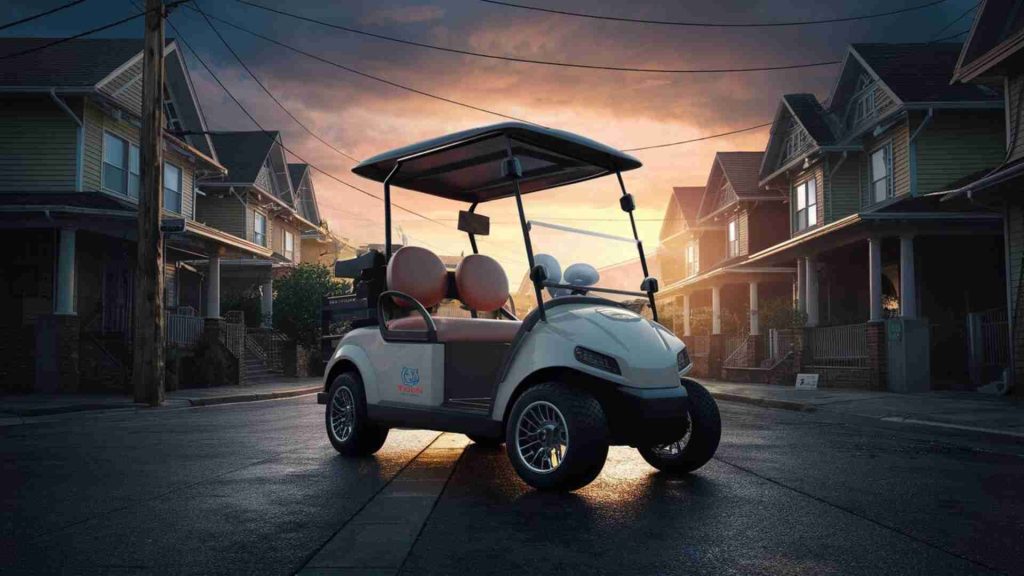
Low-Speed Vehicles (LSV)
What Is a Low-Speed Vehicle (LSV)?
A Low-Speed Vehicle (LSV) is a street-legal, four-wheeled vehicle designed for short-distance travel at lower speeds. These vehicles typically have a top speed of 25 mph (40 km/h) and a gross vehicle weight rating (GVWR) of less than 3,000 lbs. LSVs are commonly electric and must adhere to specific federal safety and performance standards. They are allowed on most public roads with posted speed limits of 35 mph (56 km/h) or less.
What Are the Characteristics of an LSV?
1. Speed Limit
LSVs are designed to travel at speeds between 20 mph (32 km/h) and 25 mph (40 km/h). This speed limitation makes them suitable for urban and residential areas, ensuring safe interaction with pedestrians and other vehicles.
2. Weight and Size Restrictions
The maximum loaded weight for an LSV is 3,000 lbs (1,361 kg). This weight restriction ensures that the vehicle remains lightweight and agile, making it ideal for short trips and local travel. Their compact size also allows them to navigate narrow streets and crowded areas more efficiently.
3. Safety Features
To comply with federal regulations, LSVs must be equipped with several essential safety features, including:
- Headlamps
- Front and rear turn signal lights
- Tail lights
- Brake lights
- Red reflex reflectors
- Exterior mirrors on both sides or an interior mirror
- A parking brake
- A conforming windshield
- Seat belts (Type 1 or 2)
- A horn
- A backup camera
- A vehicle identification number (VIN)
These features ensure that LSVs can operate safely on public roads.
What Are the Uses of an LSV?
1. Personal Transportation
LSVs are popular for personal transportation in communities, retirement villages, and urban areas. Their low speed and compact design make them ideal for running errands, commuting short distances, and enjoying leisurely drives around the neighborhood.
2. Commercial Purposes
Businesses use LSVs for various commercial purposes, including deliveries, maintenance, and transportation within large properties like resorts, campuses, and industrial complexes. Their low operating costs and eco-friendly nature make them an attractive option for commercial use.
What Are the Benefits of Using an LSV?
1. Cost-Effective
LSVs are more affordable to operate than traditional gas-powered vehicles. The cost of electricity for charging is significantly lower than gasoline, and the maintenance costs are reduced due to fewer moving parts and simpler mechanical systems.
2. Environmentally Friendly
As electric vehicles, LSVs produce zero tailpipe emissions, contributing to reduced air pollution and a smaller carbon footprint. They are an excellent option for those looking to make environmentally conscious transportation choices.
3. Easy to Operate
LSVs are straightforward to drive, with simple controls and automatic transmissions. Their low speed and small size make them easy to maneuver, even for inexperienced drivers.
4. Can Access Restricted Areas
LSVs can access areas that may be restricted for larger, faster vehicles. This includes residential zones, parks, and campuses, making them versatile for various settings.
What Are the Safety Regulations for LSVs?
1. Seat Belt Requirements
All LSVs must be equipped with seat belts to ensure the safety of occupants. This includes either Type 1 or Type 2 seat belt assemblies, providing adequate restraint during travel.
2. Lighting and Signaling Requirements
LSVs must have functional headlamps, turn signals, tail lights, brake lights, and reflex reflectors. These features are essential for visibility and signaling to other road users, enhancing safety during operation.
What Are the Differences Between an LSV and a Golf Cart?
1. Speed Limit
The primary difference between LSVs and golf carts is their speed capabilities. LSVs have a top speed of 25 mph (40 km/h), while golf carts typically do not exceed 15 mph (24 km/h). This higher speed allows LSVs to be used on public roads, unlike most golf carts.
2. Road Use
LSVs are street-legal and can be driven on most public roads with speed limits of 35 mph (56 km/h) or less. Golf carts, however, are generally restricted to private properties such as golf courses and resorts, unless modified and registered for road use according to local regulations.
3. Safety Features
LSVs are equipped with mandatory safety features such as seat belts, lights, mirrors, and reflectors, making them suitable for public road use. Golf carts may have optional safety features, but they typically lack the comprehensive safety equipment required for street-legal vehicles.
Conclusion
Low-Speed Vehicles (LSVs) offer a practical, cost-effective, and environmentally friendly transportation solution for short-distance travel. Their safety features and street-legal status make them suitable for both personal and commercial use in various settings. Understanding the differences between LSVs and golf carts, as well as the regulations surrounding their use, is essential for making informed decisions about incorporating these vehicles into your daily life.
Let Us Help You with Your LSV Needs
At Tigon Golf Carts, we specialize in providing high-quality LSVs tailored to your needs. Whether you’re looking for a reliable personal transportation solution or a versatile commercial vehicle, our team is here to assist you. Contact us today to learn more about our LSV offerings and find the perfect vehicle for your needs.
GET THE GOLF CART LSV AT THE RIGHT PRICE!
Tigon Golf Carts proudly offers 0% Vehicle Financing, making it easier than ever to own your dream golf cart. With flexible payment options and competitive rates, we ensure that Upgrading or Purchasing for the first time is not only exciting but also financially feasible for our customers, allowing you to hit the road in style without breaking the bank.

